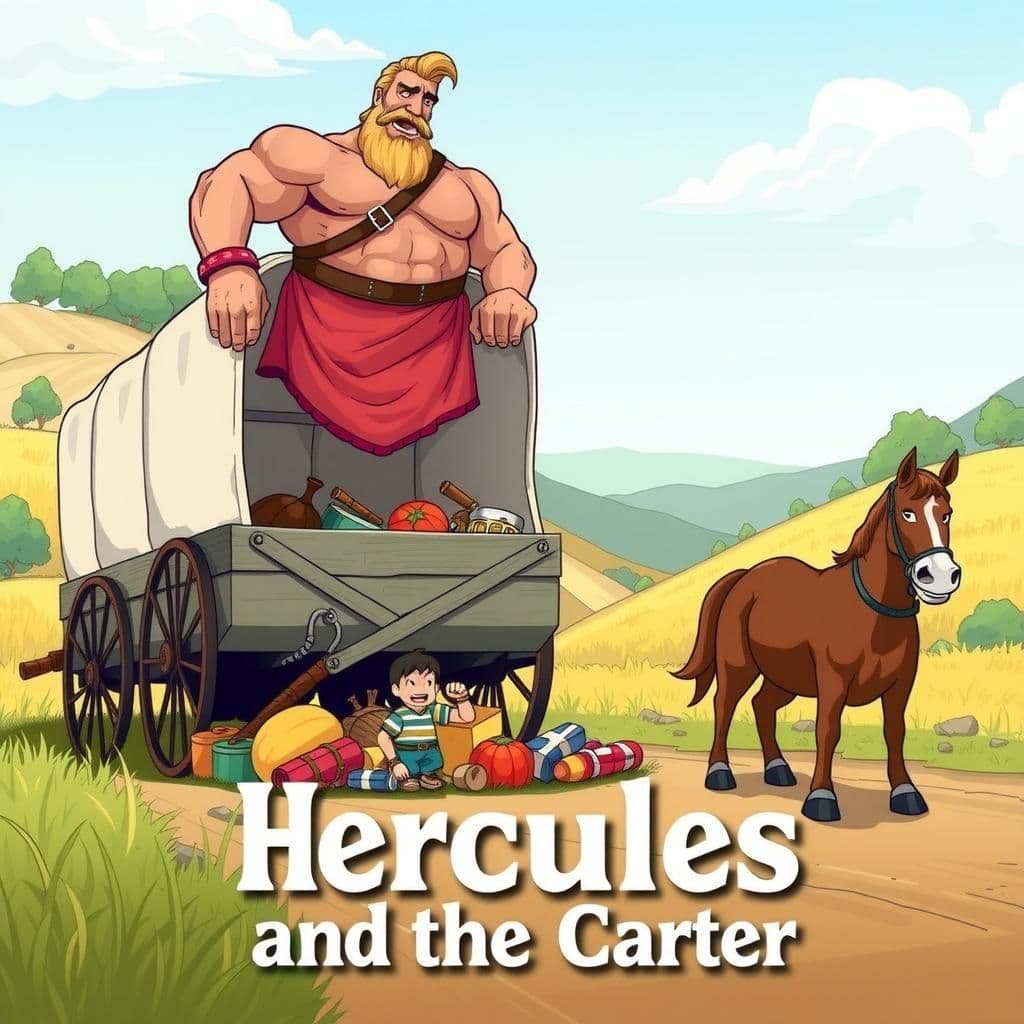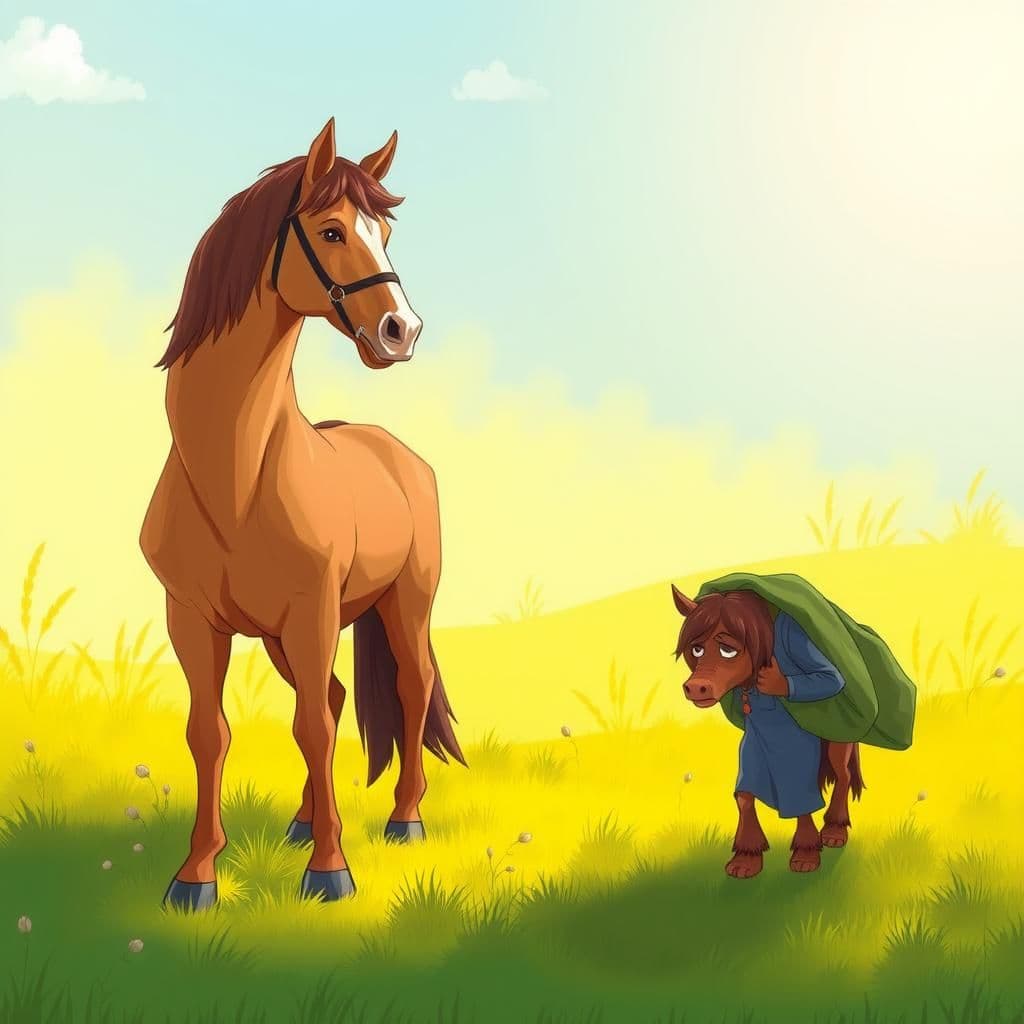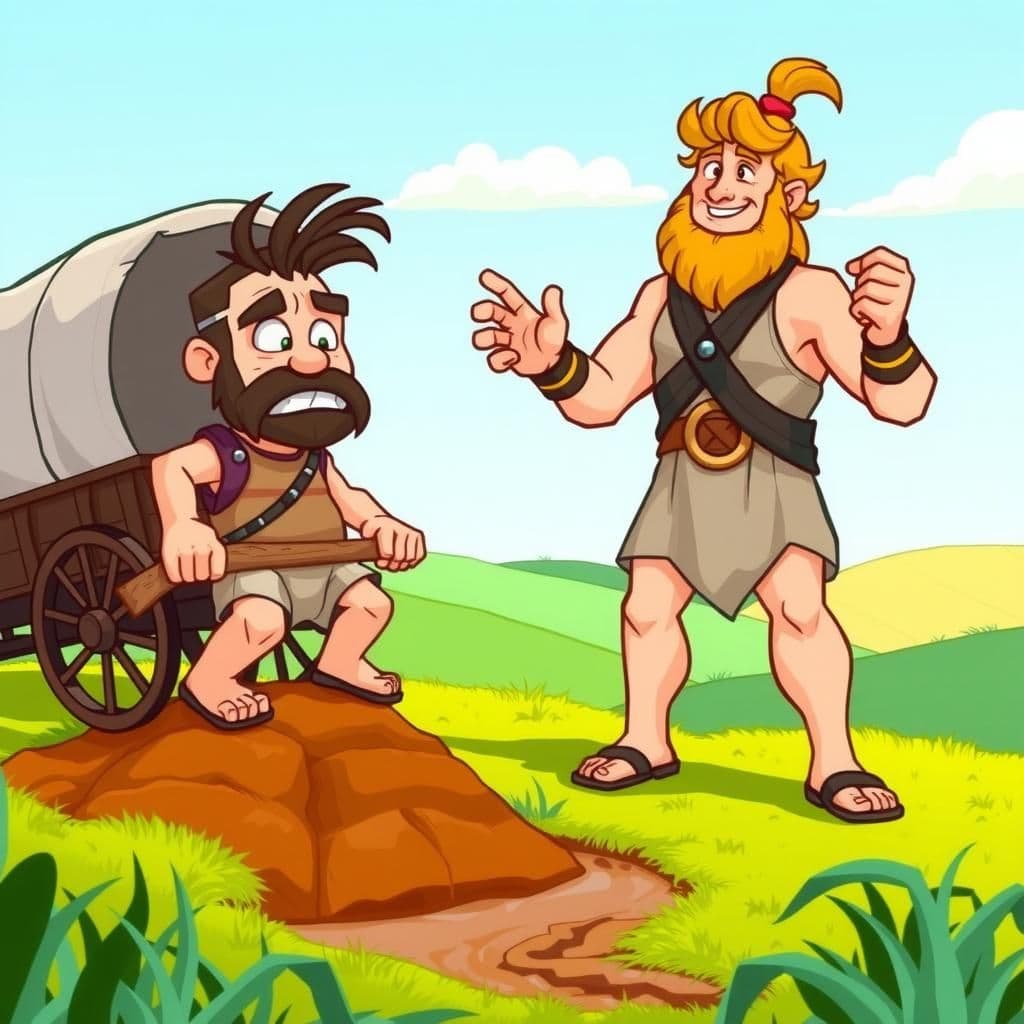Hercules and the Carter
In this simple short story with a moral, a Carter finds his wagon stuck in a rut and, instead of taking action, prays to Hercules for help. Hercules scolds him for his laziness, prompting the Carter to unload valuable goods, which allows the horses to easily pull the wagon free. This short moral tale emphasizes the importance of self-reliance and taking initiative in the face of challenges, making it a noteworthy entry among top 10 moral stories in folklore.

Reveal Moral
"The moral of the story is that one must take initiative and put in effort to overcome difficulties rather than relying solely on external help."
You May Also Like

The Horse and the Ass
In the humorous story "The Horse and the Ass," a rude horse ignores his overloaded companion's pleas for help, only to find himself burdened with the entire load when the ass collapses. This motivational tale serves as an inspirational short story with a moral, highlighting the importance of sharing each other's struggles, lest we face the consequences alone. Ultimately, it reminds us that in the top 10 moral stories, the lesson is clear: neglecting the troubles of others can lead to our own downfall.

Hercules and the Wagoner
In this humorous bedtime moral story, a carter finds his wagon stuck in a rut and, instead of taking action, calls out to Hercules for help. Hercules responds by urging him to put his shoulders to the wheels and encourage his oxen, conveying the life-lesson that self-help is the best help. This simple lesson from the story serves as a valuable moral for class 7 students, reminding them to take initiative before seeking assistance from others.

The Traveler and His Dog
In "The Traveler and His Dog," a traveler impatiently blames his dog for delaying their journey, believing the dog is not ready. However, the dog reveals that he has been waiting for the traveler, illustrating a key lesson learned from stories: those who procrastinate often misplace the blame on their more diligent companions. This captivating moral story serves as a reminder of the importance of taking responsibility for our own actions.